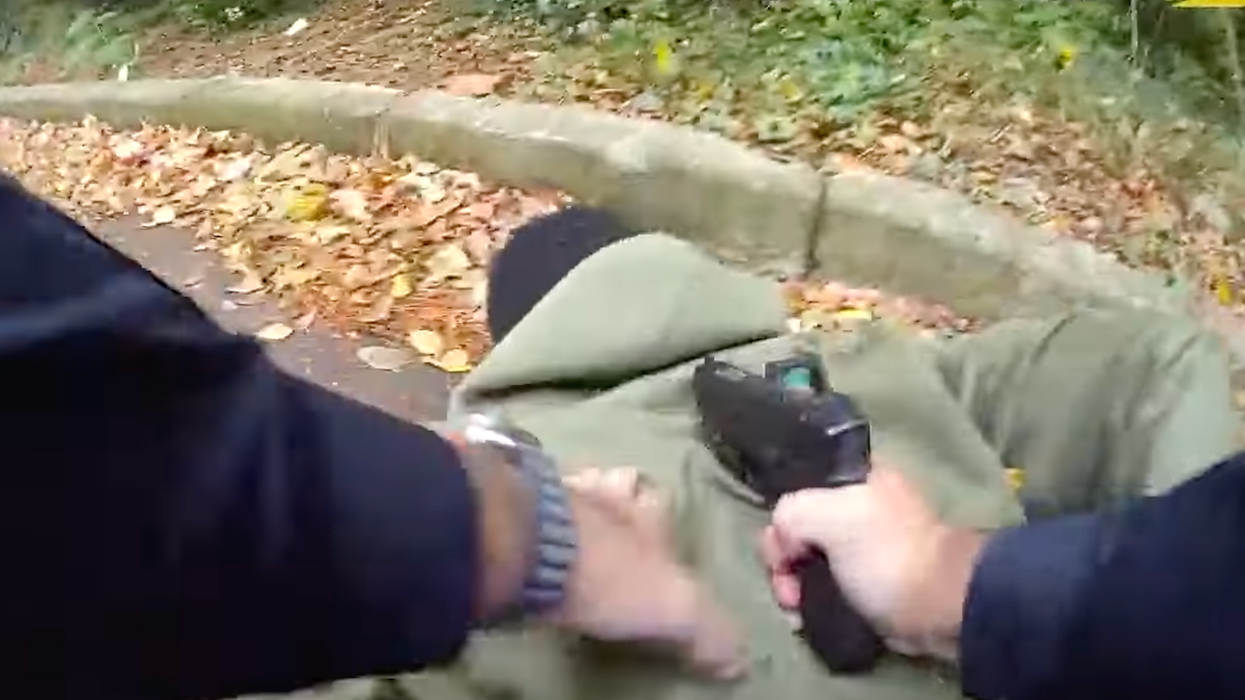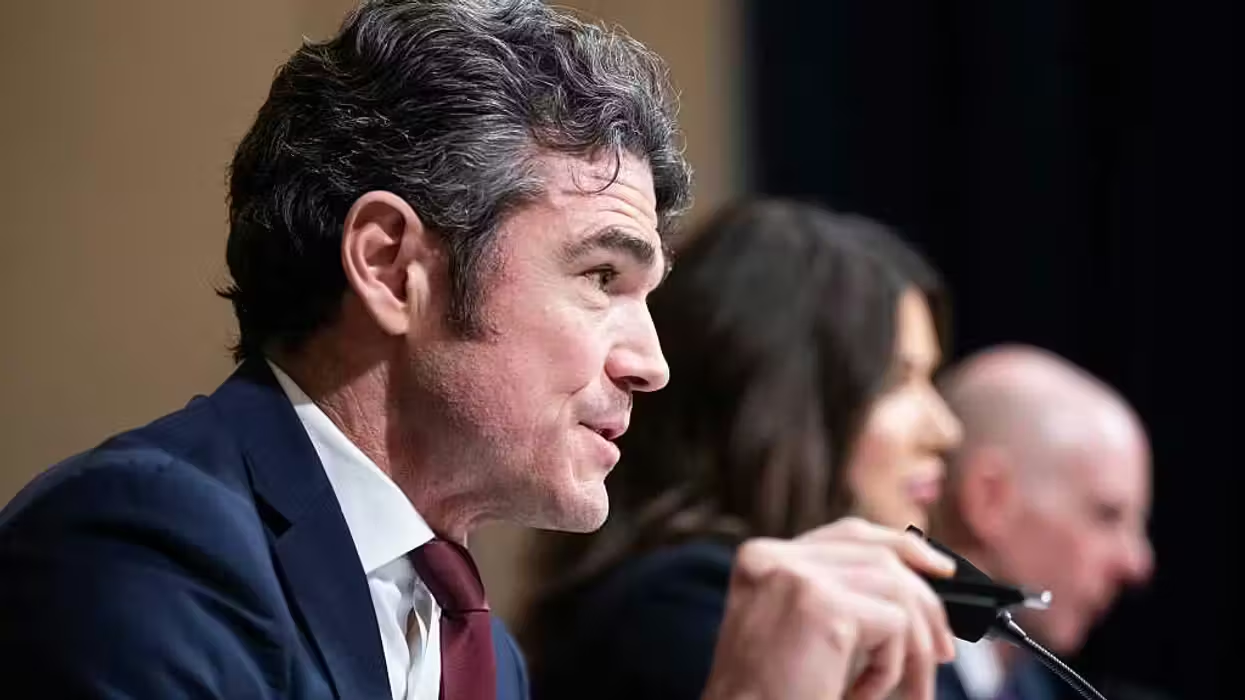
© 2025 Blaze Media LLC. All rights reserved.
Friends and Colleagues Mourn Barry Rubin, Middle East Scholar and Defender of Israel
February 04, 2014
"He wrote more cogently of the Middle East than almost anyone alive, maybe than anyone alive in the English language."
Conservative writers and Middle East analysts are posting moving tributes over the loss of one of their colleagues, Barry Rubin, who died Monday after a battle with cancer. He was 64.
 Renowned Middle East scholar Barry Rubin died Monday after battling cancer. (Photo: Facebook)
Renowned Middle East scholar Barry Rubin died Monday after battling cancer. (Photo: Facebook)
Rubin, a prolific and intrepid Middle East scholar based in Tel Aviv, was a widely followed expert who published his analyses several times a week and wrote or edited 40 books, some of which he made available online for free after his diagnosis 17 months ago.
“He wrote more cogently of the Middle East than almost anyone alive, maybe than anyone alive in the English language,” his friend and colleague Roger Simon of PJ Media wrote.
The Jewish Press wrote: “Barry Rubin's was a rare voices of clarity in the Israeli academia and in Jewish media. He was one of the good guys,” and added that he was “one of the great intellectual defenders of Israel.”
TheBlaze quoted Rubin for some of Middle East stories, and he was a contributing writer on Glenn Beck’s book “Cowards: What Politicians, Radicals, and the Media Refuse to Say” and in 2011 wrote an analysis in the Jerusalem Post supporting Beck’s presentation of the regional conflicts.
Holding a Ph.D. in Middle East studies, Rubin directed the Global Research in International Affairs Center, posted a regular column for PJ Media and served as editor of the Middle East Review of International Affairs Journal.
The blog Yid with Lid wrote: “Professor Barry Rubin, is more than one of the great intellectual defenders of Israel, he was my teacher and a friend. When we first met, it was Barry who taught me to change from being a frothing at the mouth lunatic to a thoughtful commentator. He taught me to discern the quality of information coming from the trash.”
Rubin was once a senior fellow at the Washington Institute for Near East Policy. Its executive director Robert Satloff wrote: "Barry was a brilliant scholar who was passionately committed to the pursuit of truth. He brought this determination to his fight against cancer. His death is a loss to the broader community of Middle East scholars."
Rubin once described his professional life as "an iceberg," according to a quotation published by the Jewish Press.
"What you see is only a small portion of what goes on behind the scenes, including contacts with people all over the region, sometimes people whose lives would be in danger if it were known they were talking to me," he said. "As an Israeli, I often find it’s much easier to talk with Turks, Iranians and Arabs because we are on the same page – especially in private – about understanding the reality of the region compared to the fantasies often held in Western academic, media and governmental circles."
Friends and colleagues marveled at how despite battling the cancer that had struck him, they saw Rubin continue to travel and work hard, including reenacting the Battle of Gettysburg last summer with his son, and guiding American visitors around Israel.
But on Monday, visitors saw a post on Rubin's Facebook page announcing his death: "To our great sadness, Barry Rubin passed away this morning. He was surrounded by his wife and children. Your love, support, and prayers have been greatly appreciated."
Among Rubin’s writings was an analysis in 2011 defending Glenn Beck from critics as he was preparing gatherings in support of Israel in Jerusalem and Caesarea. Rubin wrote that Beck “has a better grasp of Middle East politics than most Western experts, not to mention Western leaders.”
“Certainly, Beck makes silly mistakes on factual matters and details. Yet what’s important is that he comprehends the big picture,” Rubin wrote, admitting that he had watched “virtually every television and radio show that Beck has done over the last two years.”
“When people voice absurd and slanderous stereotypes about Beck, it turns out they haven’t actually listened to what he’s been saying,” Rubin said.
Rubin attributed Becks getting it right to these factors, “Common sense; courage; knowing the difference between right and wrong, willingness to learn, and readiness to admit when one has been wrong. These are virtues often lacking among those with more elegant reputations and impressive diplomas.”
Rubin’s colleague Dave Swindle at PJ Media compiled a list of Rubin’s books that are currently available for download as well as a preview of his two upcoming books that he was working on as he was battling the deadly disease.
According to the Washington Institute, Rubin’s resume included being a Fulbright fellow, holding a Ph.D. from Georgetown University, and holding teaching positions over the years at the American University, Bar-Ilan University, Georgetown University, the Johns Hopkins School of Advanced International Studies, Tel Aviv University and other institutions of higher learning.
He had also served as a Council on Foreign Relations fellow and among his many awards, grants, and fellowships were those from the U.S. Institute of Peace and the Hebrew University of Jerusalem.
Want to leave a tip?
We answer to you. Help keep our content free of advertisers and big tech censorship by leaving a tip today.
Want to join the conversation?
Already a subscriber?
more stories
Sign up for the Blaze newsletter
By signing up, you agree to our Privacy Policy and Terms of Use, and agree to receive content that may sometimes include advertisements. You may opt out at any time.
Related Content
© 2025 Blaze Media LLC. All rights reserved.
Get the stories that matter most delivered directly to your inbox.
By signing up, you agree to our Privacy Policy and Terms of Use, and agree to receive content that may sometimes include advertisements. You may opt out at any time.






